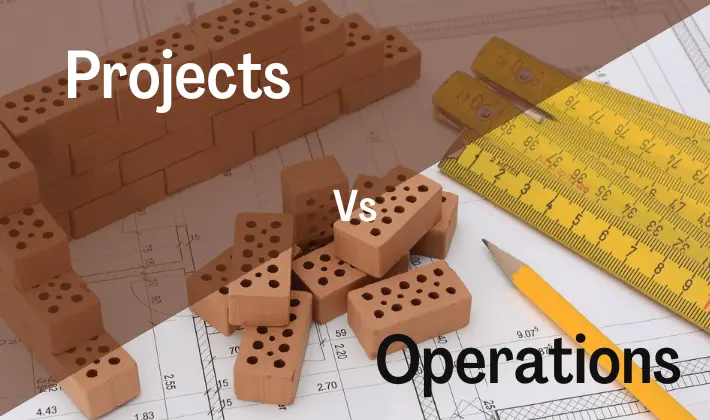There main difference between effort, duration and elapsed time is that effort refers to the amount of exertion or work done to complete a task, duration refers to the length of (working) time to complete a task, and elapsed time is the total amount of (working and non-working) time that passes between start of an activity and end of the activity.
Let’s understand the difference further by taking an example.
Tell me, how would you interpret the following statement? – “Activity Alpha would need 3 days for completion”.
This statement can be confusing without the proper context. ‘Days’ could mean one person working for 3 days. Or, it could mean 10 people working for 3 days. It can also mean 3 days for completion while including non-working time and holidays.
These project management terms are related to each other but they have completely different meaning. One term should not be used in place of the other.
Let us compare and distinguish between these terms by considering a few examples and looking at their meaning.
Project Effort
Effort is the number of labor units required to complete a task.
A task could mean an entire project or a WBS component or an activity.
The terms work and effort are synonymous in project management.
Effort is sometimes expressed in hours, days, or weeks but, in order to avoid any confusion, it is better to use person hours, person days or person weeks as units for effort.
Note: Some project management experts prefer to use ‘man’ or ‘staff’ as prefix to express effort e.g. man hours, staff days, staff weeks etc. I prefer to use person because it is gender neutral.
You can also look at Max Wideman’s Glossary for some other definitions of effort.
Project Duration
Duration is the total number of work periods required to complete a task.
Again, a task could mean an entire project or a WBS component or an activity.
Duration does not include holidays and non-working periods. Duration is usually measured & expressed in hours, days, or weeks but, in order to avoid any confusion, it is better to use work hours, work days or work weeks as units of duration.
You can also look at Max Wideman’s Glossary for some other definitions of duration.
Elapsed Time
Elapsed time is the total calendar time needed to complete a task. It includes weekends, holidays, vacations and breaks.
Again, a task could mean an entire project or a WBS component or an activity.
Just like duration, elapsed time too is usually expressed in hours, days, or weeks. Here it is appropriate to use these units for elapsed time.
Example of Project Duration, Effort, and Elapsed Time
Let us consider a small task that involves painting one large wall.
Assumptions & Estimates
- 1 work day = 8 work hours. It means that painter(s) will work 8 hours per day.
- The painting task has a Duration Estimate of 4 work days with only 1 painter working.
- There is no scarcity of painters. There are enough painters available to do the task.
- All painters have equal productivity. The amount and quality of the work is same for each painter.
- The task will start on Friday.
- Saturday and Sunday are holidays.
Effort
- If 1 painter works, the effort for the task would be 4 person days or 32 person hours.
- If 2 painters work, the effort for the task will remain same – 4 person days or 32 person hours.
- If 4 painters work, the effort for the task will still be same – 4 person days or 32 person hours.
Work
Work is synonymous with effort. MS Project uses the term ‘work’ for doing calculations related to effort.
Duration
- If 1 painter works, the duration of the task would be 4 work days or 32 work hours.
- If 2 Painters work, the duration of the task would be 2 work days or 16 work hours.
- If 4 painters work, the duration of the task would be 1 work days or 8 work hours.
Elapsed Time
- If 1 painter works, the task will start on Friday and finish on Wednesday. The elapsed time would be 6 days.
- If 2 Painters work, the task will start on Friday and finish on Monday. The elapsed time would be 4 days.
- If 4 painters work, the task will start and finish on Friday. The elapsed time would be 1 days.
Relationship between Effort and Duration (Formula)
Let us continue from the above example. The relationship between project effort and duration can be best expressed by the following formula:
(Effort) = (Duration) * (Number of Resources)
This formula will not work in all cases but it gives a fair idea of the relationship. This formula will work only if:
- Work can be easily distributed among many resources.
- There is no dependency between the resources for doing the work.
- The productivity of all resources is considered equal.
For example, the formula would not work while developing a piece of software code as one developer cannot work on a piece of code without having dependency on the other developer.
Over To You
During my training sessions, I am always asked questions about project duration, effort and elapsed time. There is a lot of confusion about these time management terms.
I think the main cause of this confusion is our day to day conversations. In our day-to-day conversations, we use time units like days & weeks interchangeably to represent duration, effort and elapsed time. This should be avoided.
How do you use these time management terms? What units do you use to connote these terms?
I would love to hear from you.
PMP Exam Formulas
I have also compiled a PMP Formulas Cheat Sheet. It contains 45 formulas and 57 abbrviations. It will help you in your exam prep. It is the best and most comprehensive cheat sheet based on the PMBOK Guide 6th edition. You can download it free of cost for your studies.
If you are looking beyond a cheat sheet, then I would suggest you to buy detailed PMP Exam Formula Study Guide by Cornelius Fichtner. It contains detailed explanations of all the formulas along with examples and 105 practice questions.
Disclosure: This article contains affiliate links - it means that, if you buy from any of these links, then I will receive a small commission that would help me in maintaining this blog for free. However, for you, there is no extra cost. I recommend only those products that I believe will definitely help the certification aspirants.




![Start to Finish [SF] Relationship (Dependency) With Examples](https://www.pmbypm.com/wp-content/uploads/2014/06/start-to-finsh.jpg)


![Which Type of Contract Is Most Risky In Procurement [PMP]](https://www.pmbypm.com/wp-content/uploads/2012/02/Type-of-Contract.png)

Regarding the example of Duration, if 1 Work Day = 8 Work Hours and 4 painters were to work 1X Work Day, then wouldn’t the answer be 32X Work Hours?
Great topic. How much time is spent in working out is duration and how much energy is spent is effort. Thanks.
Hi Neal, Duration would be 8X Work Hours and Effort would be 32X Person Hours.
If u jlhave 5 people who can be assigned to any task and must work full days on each activity… You have 11 activities and for activity A u have 15 person-days required…. What is the duration or how do u change the activity person days to duration when setting up a gantt chart? I am a bit confused with this person-days cause we are only given the activities (A-K) and the person-day required (A=15,B=8,C=5…)
Can effort vs duration also be used to describe a task that may only take, say, 4 hours of effort but, due to time available or waiting for replies, may take 5 days to complete? Effort = 4 hours, Duration = 5 days
Duration estimation and effort are one of many ingredients for a making a schedule and representing it on the Gantt chart. Typically Gantt chart is the last step of schedule preparation. First you have to find dependencies. You can read these articles – https://www.pmbypm.com/project-network-diagram, https://www.pmbypm.com/project-dependencies/, and https://www.pmbypm.com/what-is-a-gantt-chart/.
BR
Praveen.